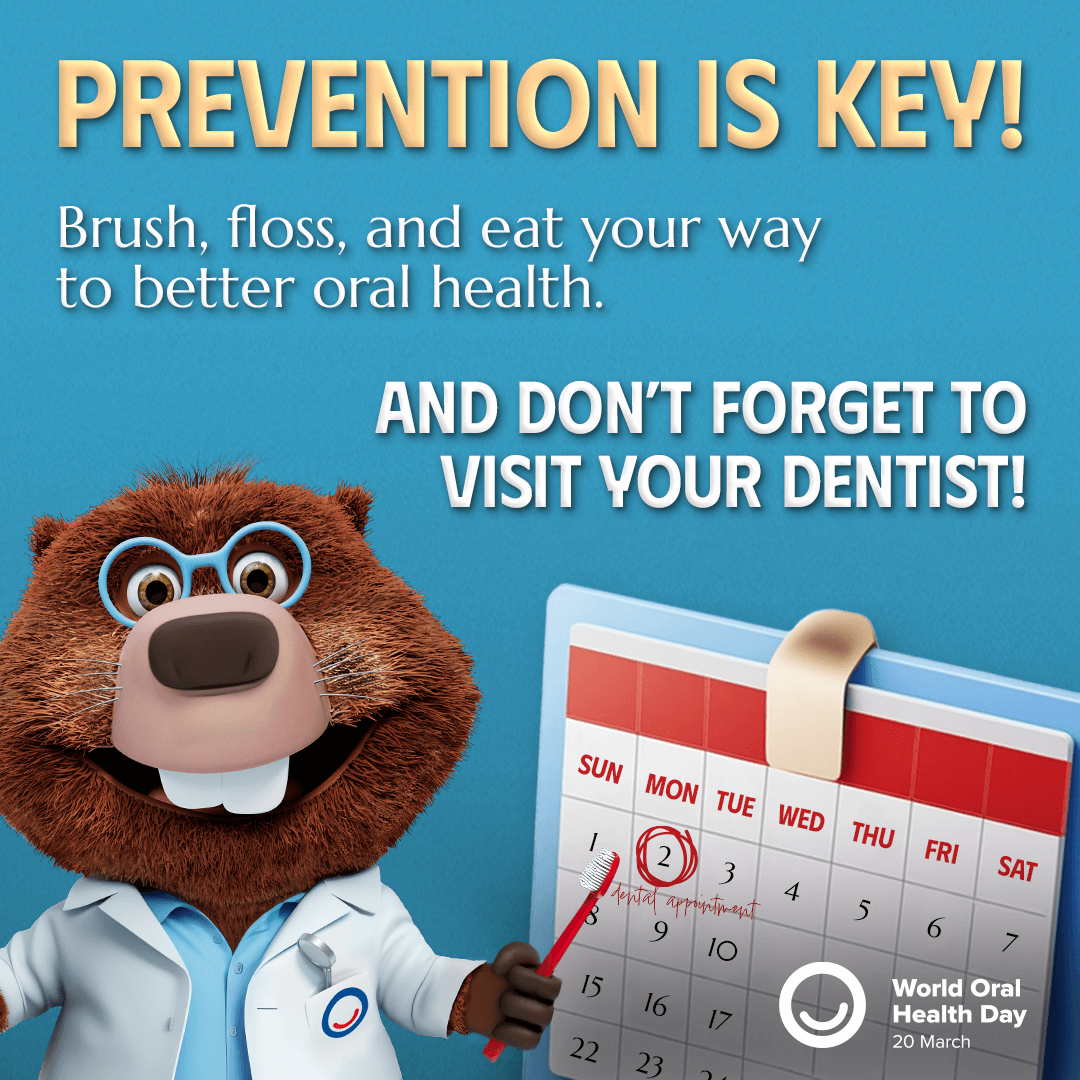

Did you know that the health of your mouth has a tremendous impact on the health of your body?
Oral health day serves as a valuable reminder of the importance of maintaining good oral hygiene, not only for the sake of our smiles but for our overall health as well. The mouth is often considered the gateway to the body, and a growing body of evidence suggests that poor oral health can have far-reaching consequences beyond cavities and gum disease. Today, let’s delve into how oral health can impact other systems in the body and underscore the reasons why keeping those pearly whites in top shape should be a priority for everyone.
The Heart of the Matter: Oral Health and Cardiovascular Disease
One of the most significant links established by research is between oral health, specifically periodontal disease, and cardiovascular conditions. Bacteria from inflamed gums and periodontal diseases can enter the bloodstream, traveling to arteries in the heart. Here, they may contribute to atherosclerosis, a condition characterized by the hardening of the arteries, potentially leading to heart attacks or strokes. While the exact mechanism is still under investigation, the inflammation caused by periodontal disease is believed to play a crucial role in exacerbating heart conditions.
Sugar, Bacteria, and Beyond: Diabetes and Oral Health
Diabetes and oral health have a bidirectional relationship. Poor oral health can exacerbate the symptoms of diabetes, while diabetes can lead to an increased risk of periodontal disease. Inflammation in the gums can lead to increased insulin resistance, which complicates blood sugar management. Conversely, high blood sugar levels create an ideal environment for the bacteria that cause gum disease to thrive. Maintaining good oral hygiene and controlling blood sugar levels are crucial steps in managing both conditions effectively.
A Breath of Fresh Air: Oral Health and Respiratory Infections
The connection between oral health and respiratory health might not be immediately apparent, but the mouth can act as a breeding ground for bacteria that cause respiratory infections, such as pneumonia and bronchitis. These bacteria can be inhaled into the lungs, especially in individuals with periodontal disease, leading to respiratory problems. In hospitals and long-term care settings, maintaining oral hygiene can significantly reduce the risk of ventilator-associated pneumonia in patients.
Brain Matters: Oral Health and Cognitive Function
Emerging research suggests a link between oral health and cognitive function, particularly in the context of Alzheimer’s disease and dementia. The theory posits that bacteria from gum disease, such as Porphyromonas gingivalis, can travel to the brain either through nerve channels in the head or through the bloodstream, potentially leading to brain inflammation, neural damage, and an increased risk of Alzheimer’s disease. Maintaining good oral health may be a preventive measure against cognitive decline.
The Gut-Oral Axis: Implications for Digestive Health
Oral health and digestive health are intrinsically linked, starting with the very act of chewing. Poor dental health can lead to insufficient chewing, affecting the digestion and absorption of nutrients. Moreover, an imbalance in the oral microbiome can lead to dysbiosis in the gut microbiome, impacting overall gut health. Conditions like periodontal disease may increase the risk of gastrointestinal diseases, such as inflammatory bowel disease, by influencing systemic inflammation.
Taking Action: How to Maintain Optimal Oral Health
Oral Health Day is an opportune time to renew our commitment to oral hygiene practices that support overall health. Here’s how:
- **Brush and Floss**: Brush twice daily with fluoride toothpaste and floss daily to keep plaque at bay.
- **Regular Dental Checkups**: Visit your dentist at least twice a year for professional cleanings and checkups.
- **Mind Your Diet**: Reduce sugary and acidic foods that can harm tooth enamel and promote bacterial growth.
- **Quit Smoking**: Smoking increases the risk of gum disease and other health problems.
- **Stay Hydrated**: Drinking water helps to remove food particles and bacteria, maintaining a healthy oral environment.
In conclusion, Oral Health Day serves as a vital reminder of the interconnectedness of our bodies. By prioritizing oral health, we not only safeguard our smiles but also take a significant step towards ensuring our overall well-being. Remember, a healthy mouth is a gateway to a healthy body, underscoring the importance of oral hygiene in maintaining the health of other bodily systems. Let’s pledge to keep our smiles bright and our bodies healthier by recognizing the profound impact oral health has on our entire system.








0 Comments